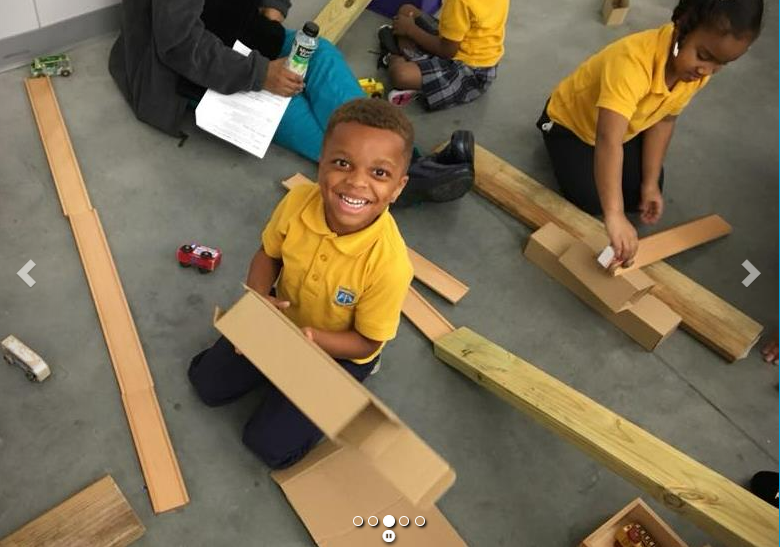
As many students continue to struggle academically more than two years since COVID-19 hit, one Florida Catholic school has a focused plan to close the gap.
Guardian Catholic School in Jacksonville, Florida, will offer learning opportunities for students in kindergarten through third grade during its summer program to help those who have fallen behind catch up to their peers.
The campus, which opened in 2017 as the result of the merger of two other local Catholic schools, will offer help in reading and math, along with the usual fun of its summer program, said school principal Sr. Cynthia Shaffer.
Guardian serves students in pre-kindergarten through third grade and is the only urban school in the Diocese of St. Augustine. About 90% of its students receive state education choice scholarships to attend the school and about 70% are eligible for free lunch.
The school has partnered with Champions, a subsidiary of KinderCare Education, to put on its summer program, though paraprofessionals and aides at the school also will be assisting students. The program was made possible by donations.
Students will spend the first part of the day focused on academics, which will include a digital phonics program for pre-kindergarten through second grade. A math and English/language arts curriculum will come from Freckle, an online resource that continuously adapts to allow students to practice their skills while giving teachers the ability to focus on grade-level standards.
The English/language arts portion features instruction in reading, vocabulary and grammar. Self-paced math exercises present more than 70,000 unique math questions, covering K-12 standards and skills.
Like most every school in Florida, Guardian closed during the spring of 2020. When fall arrived, the school reopened its campus to in-person instruction, offering a synchronous online version for students whose parents chose to continue remote learning.
Many of the students who stayed home to take advantage of remote learning during 2020-21 are between six months and a year behind grade level, Shaffer said. Among the challenges families faced was Internet connectivity. Meanwhile, teachers were forced to go at a slower pace to ensure that students who were attending in person and online were working at the same rate.
While summer has been a traditional time for learning loss, known as the “summer slide,” the negative impact of COVID-19 on learning during the academic year has ramped up the need to provide safeguards. The situation has become so dire that traditional district and charter schools are required to spend at least 20% of their federal COVID-relief aid on addressing learning loss.
A recent analysis by FutureEd, an independent think tank at Georgetown University, found summer programs to be the top strategy for learning recovery. According to the group, Miami-Dade County Public Schools has budgeted $120 million over four summers, or 12% of its total American Rescue Plan allotment.
Meanwhile, the New York City Department of Education has earmarked $101 million for its six-week Summer Rising program this summer after spending $100 million last summer. Overall, districts have spent $3.1 billion to date; that amount could reach $5.8 billion by 2004.
Like Guardian, which plans to offer crafts, play and other fun-filled activities each afternoon, many summer programs this year are going beyond traditional, academic-oriented summer school offerings to provide enrichment activities for students. Some trends identified in the FutureEd report include:
- Most summer programs will run for four weeks, although some will run longer. Miami-Dade has a 10-week program; the Cobb County School District in Georgia offers a two-month program.
- Some, like Gwinnett County, Georgia, work to prepare students specifically for the next grade level.
- While some larger districts open their summer programs to all students, many focus on the traditional summer school populations – students at risk of having to repeat a grade. Howard County, Maryland, for example, is focusing on students at schools with high rates of poverty and lagging performance.



[…] This article originally appeared at reimaginED. […]